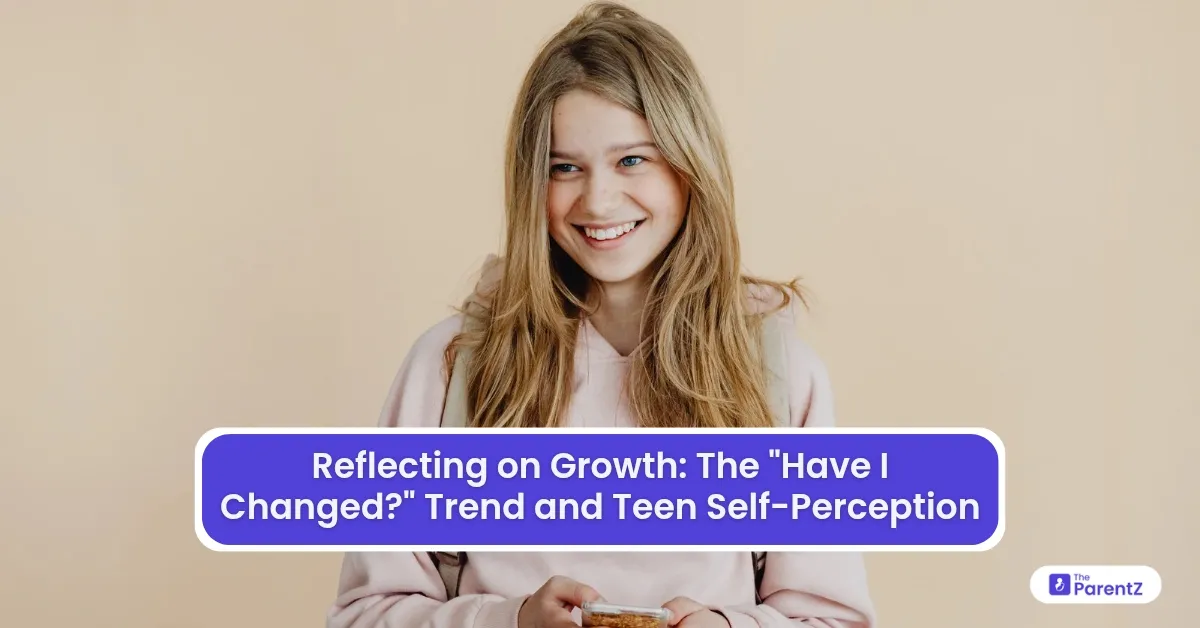Let’s talk about the TikTok trend that’s got your teen staring at old photos like they’re decoding ancient scrolls. The “Have I Changed?” trend is Gen Z’s version of a glow-up diary-equal parts nostalgia, cringe, and “wait, I actually kinda slay now?” energy. So, let's talk about why your kid’s obsessing over their past self and how to decode the vibe.
What Even Is This Trend?
If you've been on social media lately, you've probably seen videos set to that dreamy "Dreamz" track by Empirical. The format is pretty simple but hits deep: teens post a clip or photo from their past with a vulnerable question floating over it like "Have I changed?" or "Will I get better?" Then—boom—the video cuts to present day, showing their growth, confidence, and how far they've come.
It's like a mini glow-up story packed into 15 seconds.
Why Teens Are Actually Obsessed
Let's get into the teen brain for a second. Why is this trend hitting so different?
For many teens, it's about self-validation. Like, actual proof that they're growing and evolving. Their inner monologue is basically: "Look, I used to be so insecure/awkward/lost, and now I'm... still figuring it out, but definitely better!"
"Seeing the difference between me last year and me now makes the hard stuff feel worth it. Like, yeah, I survived that cringe phase!"
But it's not all super deep. Some teens are just having fun with it:
- Comparing tragic middle school fashion choices to their current fits
- Showing old hobbies versus new passions
- Even just documenting physical changes as they grow
The Crisis Moments Parents Should Know About
Parents, please pay attention. There are specific moments when teens are most likely to go through these "Have I changed?" reflections:
1. The Identity Shift (Ages 13-14)
When your kid suddenly wants to change their entire bedroom, style, and friend group overnight. This is when they're trying on new identities like clothes. That cringey phase they're documenting in their videos? It was a real exploration.
2. The Confidence Crash (Ages 15-16)
The social stakes get higher, academic pressure builds, and suddenly, your teen is questioning everything about themselves. The videos that are comparing their nervous freshman self to their more confident sophomore/junior self? That's them processing real growth.
3. The Future Freakout (Ages 17-18)
When college decisions, graduation, and adulting loom large. Those "Will I ever make it?" questions in their videos? That's genuine anxiety about the future being processed through creativity.
4. The Post-High School Reality Check (18-19)
When expectations meet reality. Those comparison videos between high school and college/work life? That's them reconciling who they thought they'd be with who they're becoming.
Why It's Actually Healthy (Mostly)
This trend isn't just about aesthetics or likes. For many teens, it's legit self-therapy.
"Making these videos helped me realize how much stronger I've gotten. I was going through it last year, and now I can look back and be like, wow, I survived that!"
The process of selecting past footage, reflecting on it, and contrasting it with the present is basically a creative form of mindfulness. They're literally learning to witness their own growth.
Of course, there's always that pressure to show a perfect transformation arc. Some teens admit to feeling like they should have a more dramatic "after" to post.
"Sometimes I see other people's glow-ups, and I'm like... wait, am I not changing enough?"
How Parents Can Connect Through This Trend
Instead of eye-rolling at another TikTok obsession, try these approaches:
- Ask to see their videos: Show interest without judgment
- Share your own "Have I changed?" moments: Yes, even from your cringey teen years
- Notice the growth they're highlighting: "I've seen that confidence in you too!"
- Validate the journey, not just the results: "The awkward phases are where we learn the most."
The coolest part? This trend is a rare window into how your teen sees themselves. They're literally showing you their inner narrative about growth.
Conclusion
Unlike previous generations who hid their embarrassing phases, today's teens are documenting, analyzing, and sharing theirs. They're more comfortable with vulnerability and self-reflection than any generation before them.
So next time you see your teen obsessing over an old photo or video for this trend, remember: they're not just chasing likes. They're processing their own evolution in a world that moves faster than ever.
And honestly? That's pretty impressive growth in itself.





Be the first one to comment on this story.